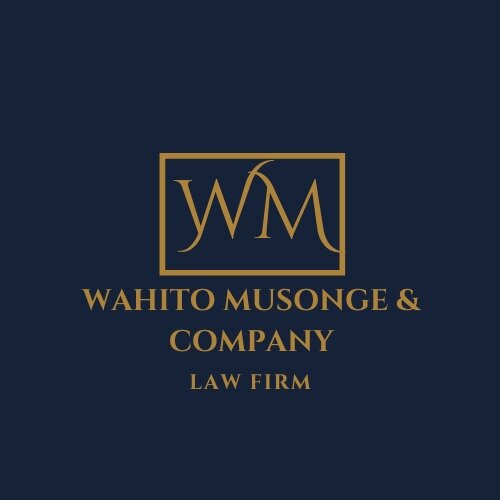Best Toxic Mold Lawyers in Kenya
Share your needs with us, get contacted by law firms.
Free. Takes 2 min.
Or refine your search by selecting a city:
List of the best lawyers in Kenya
About Toxic Mold Law in Kenya
Toxic mold, often referred to as "black mold," can be a significant concern due to its potentially harmful health effects. In Kenya, toxic mold can affect both residential and commercial properties, leading to health complications such as allergic reactions, respiratory issues, and other medical problems. While the legal infrastructure around toxic mold is still developing, there are general statutes and regulations that address environmental health and safety, which can be applied to cases involving toxic mold exposure.
Why You May Need a Lawyer
Individuals may find themselves in situations where legal assistance regarding toxic mold is necessary. Common scenarios include:
- Experiencing health issues that are believed to be caused by mold exposure.
- Disputes with landlords or property managers over mold remediation and repairs.
- Insurance claims related to property damage due to mold infestation.
- Navigating tenant rights concerning mold-related habitability issues.
- Commercial property disputes involving mold contamination.
A qualified lawyer can help you understand your rights, evaluate your case, and navigate the legal system to seek remedy or compensation.
Local Laws Overview
While Kenya does not have specific toxic mold laws, several existing laws touch on related issues:
- Environmental Management and Coordination Act (EMCA): Ensures a clean and healthy environment. While not explicit about mold, it supports health protections against any kind of contamination.
- Occupational Safety and Health Act: Addresses workplace safety and may cover cases involving mold exposure in employment settings.
- Public Health Act: Governs conditions affecting public health, which can encompass mold issues that affect health.
These laws provide a framework for seeking legal redress in incidents involving toxic mold exposure or contamination.
Frequently Asked Questions
What is toxic mold?
Toxic mold refers to certain molds that produce mycotoxins, which can cause health problems. "Black mold" is a common term for specific types of these molds.
How can I identify toxic mold?
Toxic mold often appears as black or dark green patches on surfaces where moisture is present. It can produce a distinctive musty odor. Professional testing is required for accurate identification.
What health issues can toxic mold cause?
Exposure to toxic mold can lead to respiratory issues, skin irritation, headaches, and allergic reactions. Chronic exposure can result in more serious health complications.
Is my landlord responsible for mold removal?
If you are a tenant, your landlord is typically responsible for maintaining habitable living conditions, which includes addressing mold issues promptly.
Can I sue for health issues related to mold exposure?
Yes, if you can demonstrate that negligence led to your exposure and health problems, you may have a case for compensation.
Does my insurance cover mold damage?
Coverage varies by policy, but many standard home insurance policies may not cover mold unless it resulted from a covered peril, like a burst pipe.
How do I file a complaint about mold?
You can start by notifying your landlord or property manager in writing. If unresolved, you may escalate to local health authorities or seek legal assistance.
What should I do if I find mold in my workplace?
Report it to your employer and request proper remediation. Consult with the Occupational Safety and Health authorities if necessary.
Can mold affect my property's value?
Yes, unresolved mold issues can significantly decrease property value and deter potential buyers.
Do I need a lawyer for a mold-related insurance claim?
Having a lawyer can be beneficial, especially if your claim is denied, underpaid, or involves significant damage.
Additional Resources
For more information and assistance regarding toxic mold in Kenya, consider contacting the following:
- National Environment Management Authority (NEMA): Offers guidance on environmental health issues.
- Public Health Department: Can provide information on health impacts of mold and related interventions.
- Occupational Health and Safety Department: For workplace-related mold issues.
Next Steps
If you require legal assistance with a toxic mold issue, consider taking the following steps:
- Document the issue: Take photos, keep records of any health symptoms, and maintain a timeline of events.
- Consult with a medical professional to assess health impacts.
- Seek out a lawyer specializing in environmental or housing law.
- Explore options for remediation and negotiate with involved parties, if possible.
- Consider mediation or arbitration as alternative dispute resolution methods before pursuing litigation.
Lawzana helps you find the best lawyers and law firms in Kenya through a curated and pre-screened list of qualified legal professionals. Our platform offers rankings and detailed profiles of attorneys and law firms, allowing you to compare based on practice areas, including Toxic Mold, experience, and client feedback.
Each profile includes a description of the firm's areas of practice, client reviews, team members and partners, year of establishment, spoken languages, office locations, contact information, social media presence, and any published articles or resources. Most firms on our platform speak English and are experienced in both local and international legal matters.
Get a quote from top-rated law firms in Kenya — quickly, securely, and without unnecessary hassle.
Disclaimer:
The information provided on this page is for general informational purposes only and does not constitute legal advice. While we strive to ensure the accuracy and relevance of the content, legal information may change over time, and interpretations of the law can vary. You should always consult with a qualified legal professional for advice specific to your situation.
We disclaim all liability for actions taken or not taken based on the content of this page. If you believe any information is incorrect or outdated, please contact us, and we will review and update it where appropriate.
Browse toxic mold law firms by city in Kenya
Refine your search by selecting a city.









